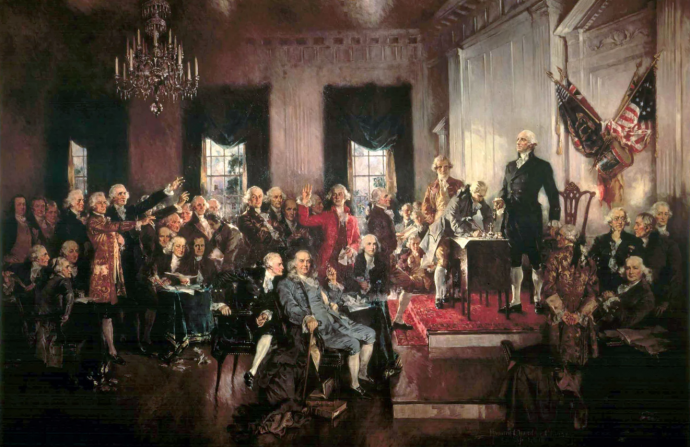People don’t know the Constitution? Ya think? Here is Akhil Rajasekar writing at The Federalist:
Our constitutional culture is falling apart. We should remedy it before it’s too late.
The Constitution of the United States was created with a simple purpose: to limit government. Imbued with various separations and specific endowments of power, the Constitution is America’s ultimate obstacle to government tyranny, higher and more powerful than any person, institution, or office.
This much we should already know from what passes for high school civics classes. But perhaps the most important aspect of the Constitution lies beyond where this common narrative ends.
Strictly speaking, our Constitution is pathetic. Now, its contents are fabulous — drawing on keen insights into human nature, desires to correct past mistakes, and profound conceptions of natural rights. But the fact still remains that our constitutional institution is extremely weak. It is but a long piece of old paper.
Even if Alexander Hamilton is still right and the judiciary possesses “neither force nor will,” at least it possesses that much of both, which follows from its human composition. The Constitution, on the other hand, is an old document — barely an entity, much less an institution in itself. One cannot reasonably expect scarcely visible words on paper to carry much weight against an executive with military powers or a populist legislature.
In that sense, the greatest of the Constitution’s institutional powers came after its writing, in the ratification process. By taking the fight over the Constitution directly to the people through state conventions — and circumventing state legislatures altogether — the Framers gave the people a personal stake in the outcome of their Constitution.
By doing so, they gave the Constitution its most powerful weapon against the government and embedded in the very heart of American identity a strong constitutional culture. Members of Congress, presidents, and justices on the Supreme Court would come and go, but as long as the American people existed, the Constitution would have every bit the power as it did the moment it was ratified.
Read more: The Federalist

